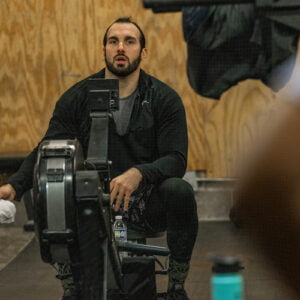In this episode of Science With Sergio, we go down the rabbit hole on the predictive coding model of cognition and how it relates to fatigue.
As a quick reminder, on Science With Sergio episodes, we dig into a specific scientific paper and attempt to apply it to practical training advice through reckless, hand-wavey assumptions and careless oversimplifications.
On this episode, we discuss Towards the unity of pathological and exertional fatigue: A predictive coding model from Aaron Greenhouse-Tucknott, Jake Butterworth, James Wrightson, Nicholas Smeeton, Hugo Critchley, Jeanne Dekerle, and Neil Harrison.
The predictive coding model of cognition can be opaque and challenging at first, but it offers deep insight into what may be happening when we want to keep exercising but just get too tired.
The authors of this paper argue that the sensation of fatigue may emerge as a response to the brain making poor predictions and realizing that there are huge differences between sensory data and the predictions it made about what was going to happen.
Basically, if you exercise too hard, you start to lose the ability to predict how your body is going to react, so your brain slows you down until it finds its footing again.
While getting into the weeds of the model can have a sort of hall of mirrors, infinite regress feel to it, there are still practical takeaways for any coaches or athletes looking to better understand why people get tired.
Listen Here
- iTunes
- Overcast
- Google Podcasts
- mp3
- Or stream here:
- If you’re enjoying the show, why not a leave a review? It makes a difference in terms of other people finding the show.
Show Notes:
- [00:13] How does the brain experience fatigue? What is the “predictive coding” model?
- [08:15] A summary of predictive coding — how brain researchers use this model to understand consciousness and how this is related to exercise performance
- [20:31] How the body attempts to regulate systems during fatigue — and what happens when it starts to make errors both in its ability to maintain homeostasis and in its ability to predict what’s coming next
- [27:14] Marcora’s psychobiological model of fatigue and how that relates to the predictive coding model of fatigue
- [34:18] How does pre-workout anxiety fit into this model?
- [47:05] How would an athlete improve their conscious and subconscious predictive abilities? Is this just “good training”?
- [54:49] Is physiological compensation rooted in prediction error?
- [01:04:08] How much of “rate of perceived exertion” is associated with exercise induced discomfort?
- [01:08:40] Practical takeaways: good training pushes people just past their current abilities, which improves both conscious and unconscious self-regulation and results in improved performance
Links and Resources Mentioned
- Towards the unity of pathological and exertional fatigue: A predictive coding model
- Karl J. Friston
- “Karl Friston: Neuroscience and the Free Energy Principle” from the Lex Fridman Podcast
- Information theory
- Bayesian statistics
- Allostasis
- Moxy Monitor
- Samuele Marcora
- Psychobiological Model of fatigue
- Lactate Dynamics Training
- Fartlek






One Response